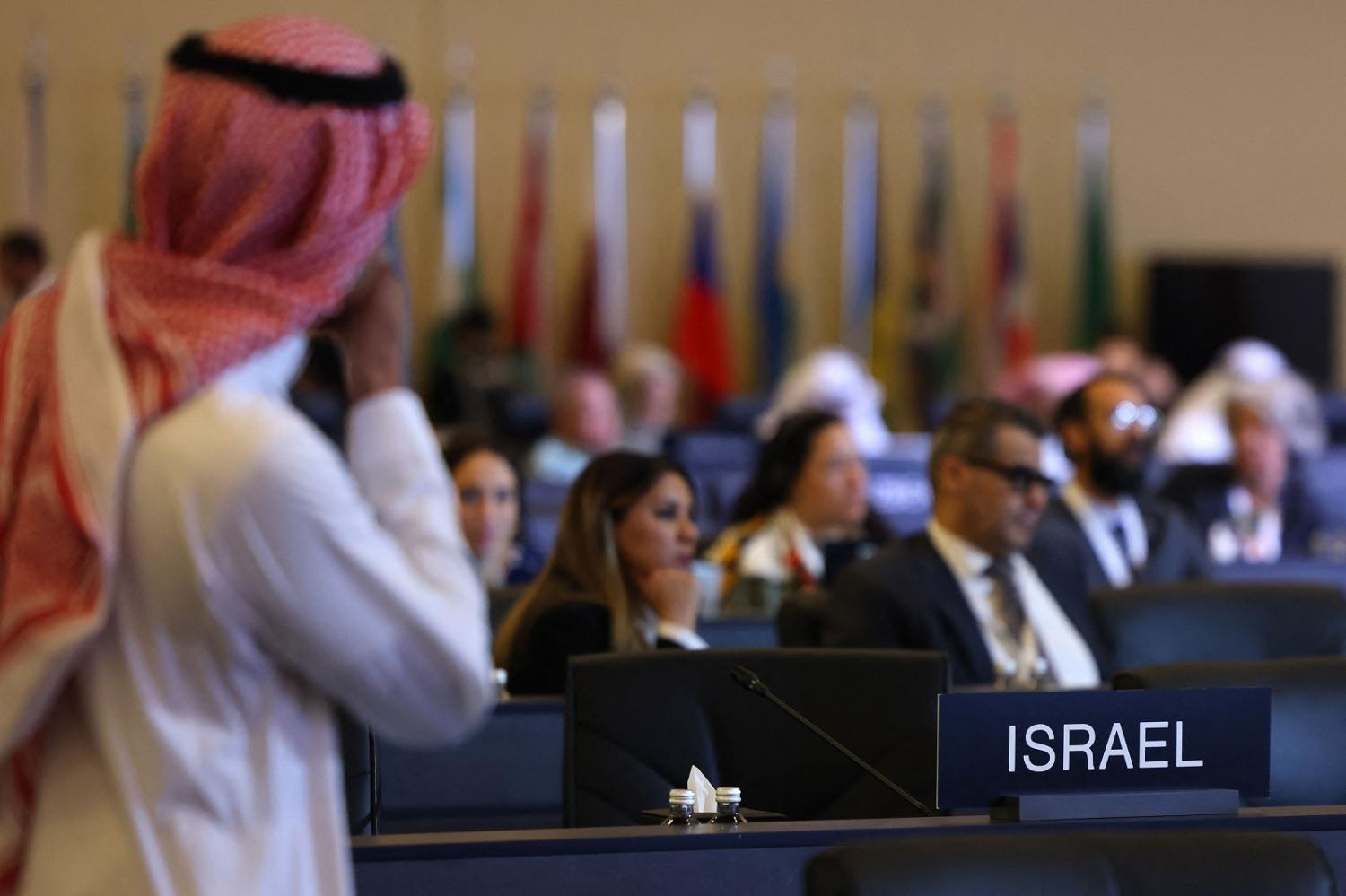A diplomatic deal normalising relations between Israel and Saudi Arabia – a breakthrough that would have been inconceivable several years ago – is suddenly a plausible prospect.
The prize is big. Mutual recognition between Israel and Saudi Arabia, two of the region's most significant powers, would transform the strategic landscape of the volatile Middle East. It would set the region up for an era of peace unknown since Ottoman times, and lay the groundwork for economic progress.
But the deal emerging is complicated and the degree of difficulty high, with each of the three principal partners – Israel, Saudi Arabia and the United States – required to make major concessions.
Saudi Arabia is seeking a formal security guarantee from the United States, and preferably of the highest order, such that an attack on Saudi Arabia would be treated as an attack on the United States itself.
Saudi Arabia also wants a civil nuclear and uranium enrichment capability.
The Saudis see both elements as essential to guarantee their security against major regional threat, Iran. A US security guarantee would deter Iran, while an enrichment capability would provide Saudi Arabia a short pathway to nuclear weapons, should Iran cross this threshold. As Saudi Crown Prince Mohammed bin Salman bluntly told Fox News last week: "If they get one, we have to get one."
For the United States, providing a security guarantee to an autocratic regime with poor human rights and a record of foreign adventurism will face significant domestic political opposition, particularly among Democrats. And allowing nuclear enrichment technology to spread in the Middle East would overturn decades of US non-proliferation strategy.
Any formal security treaty would need to pass the US Senate with 67 votes, meaning President Joe Biden will need the support of legislators on both sides to make the deal a reality.
The Saudis, as guardians of Islam's two holiest sites, know that any recognition deal with Israel that falls short of delivering Palestinian statehood is at risk of being portrayed as a sellout. But knowing this goal is out of reach, they are nevertheless trying to secure some credible progress towards a Palestinian state.
The Palestinian Authority is taking a pragmatic view, engaging with Saudi Arabia to try and get the best deal possible, rather than shunning it entirely.
But its list of deliverables is still ambitious. It includes Israel granting the Palestinian Authority more control over large parts of the West Bank, the resumption of final status negotiations with Israel on a clear timetable, the cessation of Israeli settlement building and expansion in the West Bank, and restored Saudi funding to the Palestinian Authority.
Palestinian Authority President Mahmoud Abbas is walking a fine line. More radical Palestinian actors will accuse him of abandoning the Palestinian national cause. He will be hoping that incremental progress towards Palestinian statehood, and improved conditions in the West Bank, will offset this. And he will be counting on the Saudis to purchase acquiescence from Hamas, which runs Gaza and presents the biggest threat to Abbas' rule.
For Israel, the domestic politics of such a deal are equally difficult. Israeli Prime Minister Benjamin Netanyahu's governing coalition is dominated by security hawks and ultra-nationalists.
The ultra-nationalists are opposed to any territorial concessions in the West Bank and are hostile to the very notion of a Palestinian state. They see the West Bank as part of Israel, and much of their political project is devoted to strengthening Israel's claims to this territory.
Israel's defence and intelligence establishment fear that if the Saudis obtain an enrichment capability, it will set off a regional cascade, with Egypt, Türkiye and the UAE likely to insist on the same, and Iran's nuclear program effectively normalised. Israel's status as the region's sole nuclear power, which underwrites its national survival, will be undermined.
Netanyahu's current governing coalition will be unable to support such a deal. But if he is able to reconfigure his governing coalition, and willing to risk his prime ministership, there is probably a majority in Israel's Knesset that could support such a deal.
The domestic politics for each country is difficult. But if respective leaders can prevail, the potential is great.
For the United States, it would help de-risk the region, counter China's inroads in the Gulf, and be a substantial diplomatic achievement for Biden in the lead-up to the 2024 elections.
For Israel, a formal end to the Arab–Israeli conflict would cement its place in the region and serve as a security asset, just as the peace treaties with Egypt and Jordan have done. For Netanyahu, it would fulfil his historic sense of mission to safeguard Israel for the future.
For Saudi Arabia, a US security guarantee will safeguard its future, while normalisation with Israel will provide a valuable strategic partner for managing the region and a source of economic dynamism. And it would burnish Crown Prince Mohammed bin Salman's modernising and reformist credentials.
Deep structural changes have made this diplomacy possible.
China is now a significant actor in the Middle East, introducing a new element of US–China strategic competition, and giving the region geopolitical choices and hence leverage.
The Arab–Israeli conflict has lost its potency among the Arab street, giving political leaders more scope for diplomatic flexibility.
Iran's ambition for regional dominance has brought into existence new balancing coalitions.
And the reality of US strategic disengagement from the region is fostering a new sense of strategic maturity, compelling the region to take more responsibility for its own security.
A “new Middle East” has often been proclaimed. This time it might actually eventuate.

